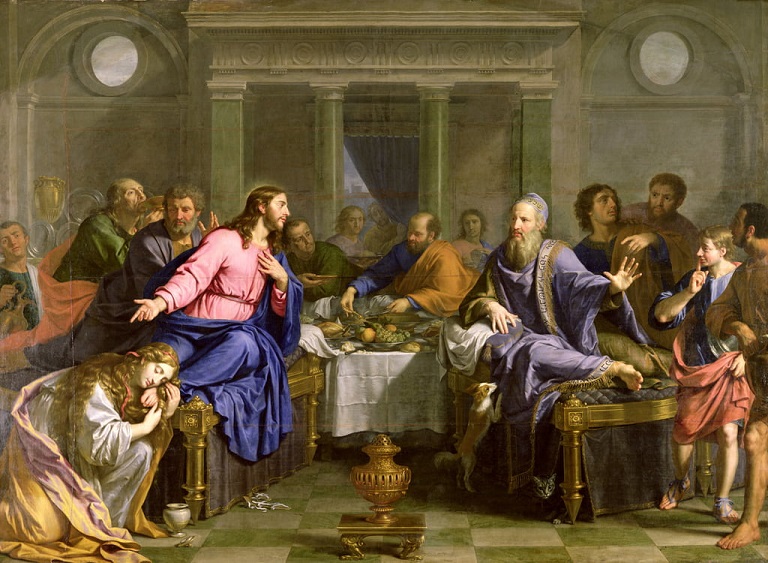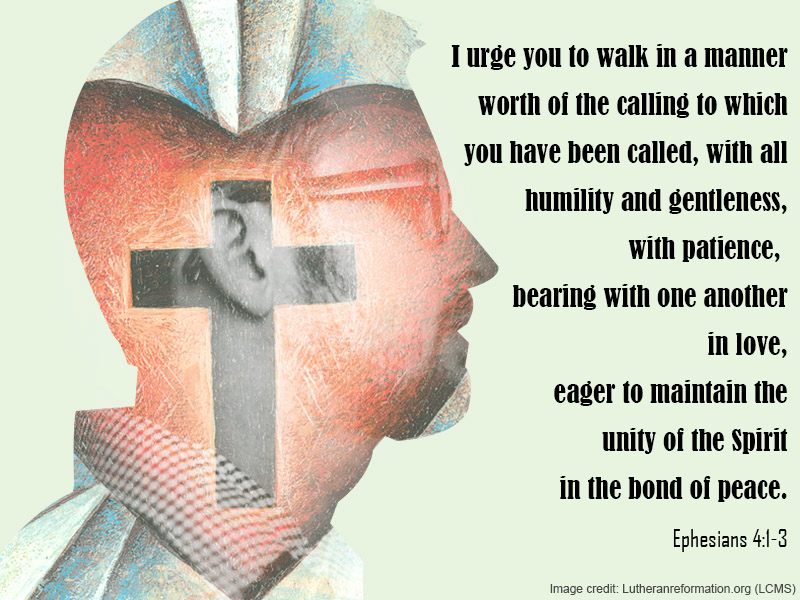Readings: Proverbs 25:6-14 | Ephesians 4:1-6 | Luke 14:1-14
Text: Luke 14:1-14
Theme: We exalt ourselves and our works, so God humbles us, so that He would exalt us through His Son.
Intro: It all takes place in the Pharisee’s house. In formality, banquets had a protocol of where was proper to recline. The host reclined in the center, and his guests around him.
I. Men flaunt religion in their own house but leave God out in the cold night.

A. Is it possible that there is a worship of God without God? Yes, when our own “devotion” forgets the God it claims. Like Cain who makes his offering to God and then is mad when God doesn’t accept it.
B. The Pharisees were so devoted to their “right” way, but they forgot the heart of God for this poor, sick man. Unfit for the temple meant unworthy of compassion—“am I my brother’s keeper?” (Gen. 4:9)
C. Do we, as post-Reformation Christians use grace to as an excuse to ignore the people who are made in God’s image? There are droves of people in need, but we would rather leave the sick to the hospital, the mentally ill to their own delusions, the poor to handout programs. Image of seeing the accident on the road and driving by because the police and ambulance could handle everything.
II. God’s Son entered the house—uninvited—and humbled Himself by taking the lowest place.

A. It’s a shameful thing when one’s devotion is shown to be a farce. So much zeal, so much effort. I’ve kept myself on the right path? I haven’t gotten my carpets dirty! Was the swollen man even allowed in the Pharisee’s house, or did Jesus go outside to him?
B. Jesus did for us what none of us were willing to do. He took the lowest place. He bore the humiliation:
Christ Jesus, 6 who, though he was in the form of God, did not count equality with God a thing to be grasped, 7 but emptied himself, by taking the form of a servant, being born in the likeness of men. 8 And being found in human form, he humbled himself by becoming obedient to the point of death, even death on a cross. (Phil. 2:5-8)
He even the taunts of the proud
“39 And those who passed by derided him, wagging their heads 40 and saying, “You who would destroy the temple and rebuild it in three days, save yourself! If you are the Son of God, come down from the cross.” 41 So also the chief priests, with the scribes and elders, mocked him, saying, 42 “He saved others; he cannot save himself. He is the King of Israel; let him come down now from the cross, and we will believe in him. 43 He trusts in God; let God deliver him now, if he desires him. For he said, ‘I am the Son of God.’ ” 44 And the robbers who were crucified with him also reviled him in the same way.” (Matt. 27:39-44)
C. By taking that humble place, He bore the fall that our pride deserves.
“Pride goes before destruction, and a haughty spirit before a fall.” (Prov. 16:18) How great the fall into destruction would be, if it were not for Jesus, our Savior!
III. Our houses are full of hypocrisy, but through His humiliation, God has welcomed us into His own house.

A. The truth is that our “house” is full of hypocrisy toward God and lies we tell ourselves. Our house is “full of dead men’s bones and all uncleanness” (Matt. 23:27)
B. But by humbling us, showing us our sin, God actually exalts us. “11 For everyone who exalts himself will be humbled, and he who humbles himself will be exalted.”
C. He snatches us from the “outer darkness” through His Son, and welcomes us into His own house forever. “7But I, through the abundance of your steadfast love, will enter your house. I will bow down toward your holy temple in the fear of you.” (Psalm 5:7)
The setting of His house is quite different: “Rather, let the greatest among you become as the youngest, and the leader as one who serves. 27 For who is the greater, one who reclines at table or one who serves? Is it not the one who reclines at table? But I am among you as the one who serves.” (Luke 22:26-27) Now come, as your gracious Host continues to exalt the humble by feeding them His own Body and Blood.
God’s Peace to You. Amen.




